Welcome to another issue of The Newport Cornucopia where we dig through the newspapers archives for interesting news articles and adverts. All articles are posted verbatim and most headlines are original (headlines in quotes are my own).

Tannaker's Temple of Japan
On 27th July, 1881, Tannaker's Japanese Troupe arrived in Newport to perform at the Victoria Hall for a few days. The troupe was run by Tannaker Buhicrosan, a man who's identity is a mystery but may have been born in Liverpool in 1840.
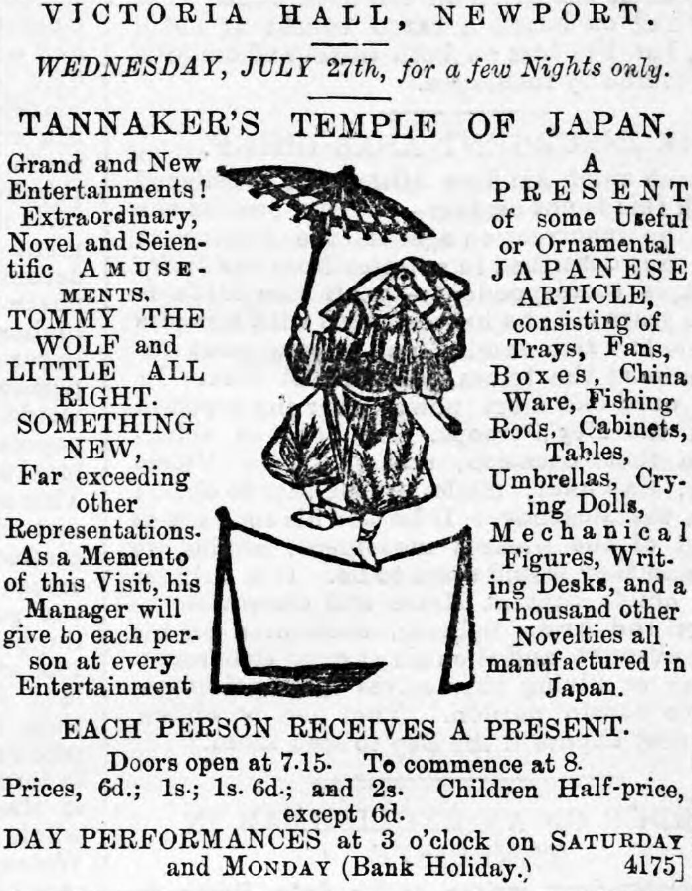
The show consisted of acrobatic and juggling feats and each visitor would walk away with a Japanese curiosity such as the ones listed in the advert.
At a meeting of the Newport Board of Guardians shortly after the shows mentions that an invitation to attend had been sent to the Workhouse but was left up to the Master to decide who should be allowed to attend.


'Excursions to France with Great Western'
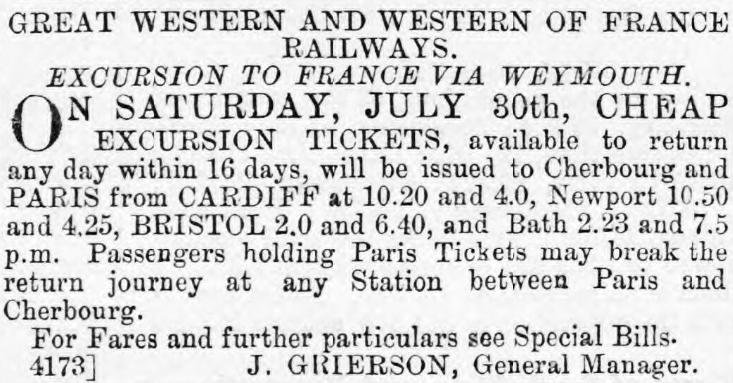

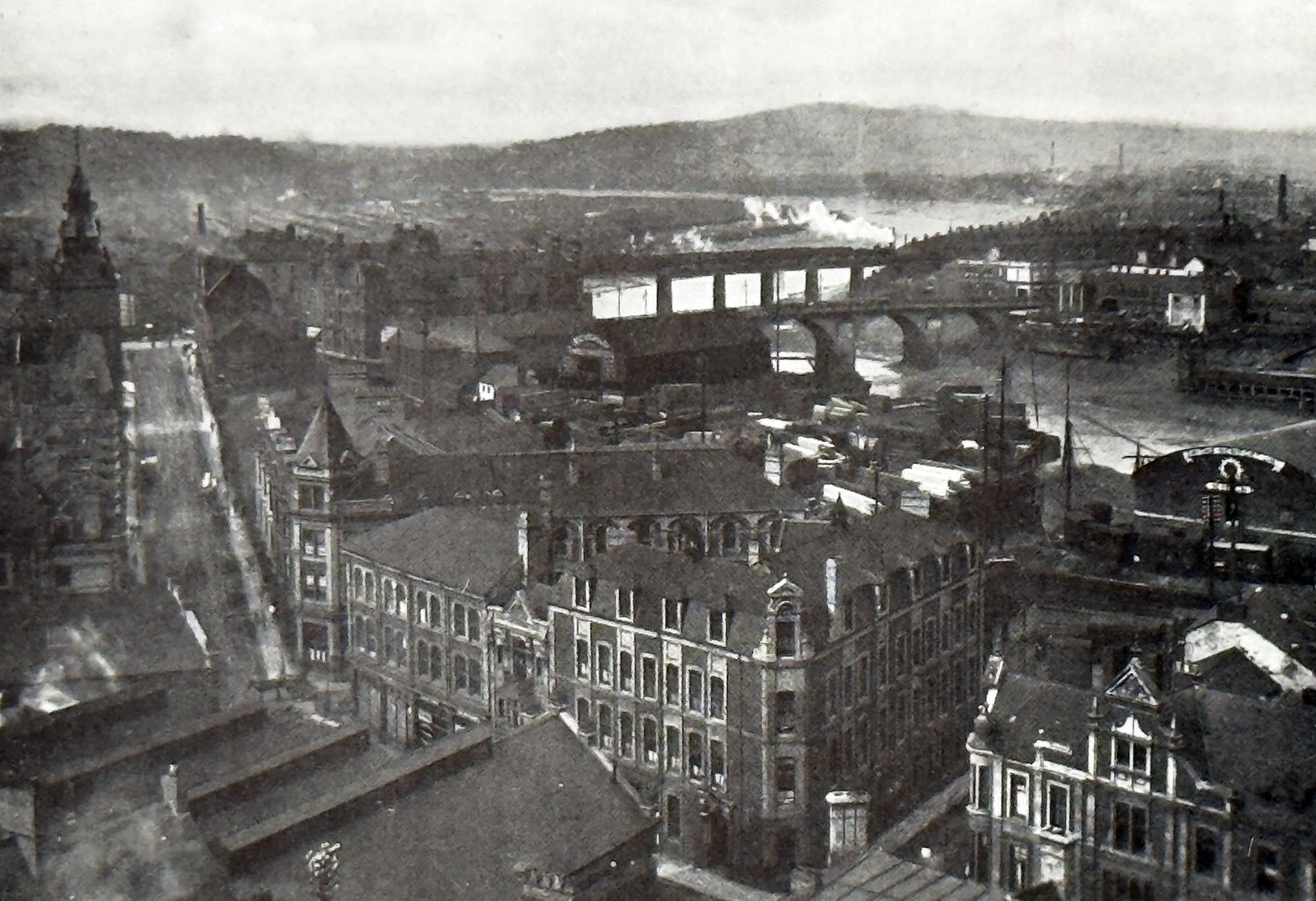

The Pitch and Toss Nuisance
Mr. G. W. Jones said as they were now on the Watch Committee, he would ctll attention to the disorderly state of Lower Cross-street, on Sunday afternoons. He did not know what the police were doing on these afternoons, but the state of that locality was most disgraceful. They would play pitch and toss, and the noise was audible at his own house and the respectable inhabitants in the vicinity complained bitterly about it.
His object in speaking was to call the attention of the Chief Superintendent of Police to the matter, that he might request his men to attend to this locality. The Chief Superintendent said there were constantly cases before the Magistrates, but there was a difficulty in catching them.
— Monmouthshire Merlin, 11th December, 1869




'Wilfully Damaging Grass'
Isaac Fox was summoned for wilfully damaging the grass in a field belonging to Mr. Wm. Graham and others, near the Cemetery. Defendant said he was only walking along an old path, as he had done hundreds of times before; and, besides, there was no board up to caution the public against walking along the field.
George White, who stated the case, acknowledged that no damage was done by defendant. There were some boards up to give notice against trepassing. Mr. Robt. Graham said he had no desire to press the case against the defendant, he only wished to caution him and the public not to repeat the trespass.
The Mayor said he had known the fields for 35 years, and there were no other paths there, but what had been made by trespassers. Cautioned not to repeat the offence, and case dismissed.
— Monmouthshire Merlin, 13th May, 1853
'Fresh, Not Drunk'
James Thompson was charged with being drunk and disorderly. Thompson said he was "fresh," not drunk; and was going home all right, when taken. It was shown by P.C. Jenkins, that last night, about twelve o'clock, the defendant was quarrelling with his wife and sister in the street, and an old man was struck by Thompson, without provocation. Defendant indignantly and vehemently repelled the accusation that he had struck an old man. Fined 5s. and costs, or 14 days' imprisonment.
— Monmouthshire Merlin, 13th May, 1853
The Bid-Ale Nuisance
John Walford re-appeared this morning to answer the complainant and information of Mr. Superintendent Hopkins, for selling beer in his dwelling-house, in Friars' fields, without a license, against the statute in that case made and provided.
David Stephens, one of the party who had been drinking at the defendant's house, gave evidence in support of the information.
Walford said: It was not me who sold the beer. The beer witness drank was sent out for to a public-house.
Mr. Pike: It don't matter where it came from you sold it in your house.
Mr. Hughes to Walford: You sold beer at Stow Fair, didn't you, without a license, also?
Walford: Yes. sir, hut I sold under the license of the Three Cups, kept by Mr. Chapman. He couldn't go, so I sold for him.
Mr. Hughes: You had no right to sell with another man's license.
The Mayor to Walford: I advise you to take more caution in future not to sell beer without a license, for we are determined to punish all who do so. Fortunately for you the evidence is not quite satisfactory, and you are discharged
Mr Pike, the clerk here addressed the Bench in a whisper, when...
The Mayor informed Walford that his case was remanded to Thursday, in order to obtain further evidence against him.
John Morgan also re-appeared on a similar charge.
William Williams gave evidence against Morgan in support of the information, and proved that he bought beer in the house, and paid for it at the usual price. There were several other persons drinking there at the same time.
Morgan: I didn't see Williams in my house for the night.
Mr. Pike: Perhaps not. None so blind as those who won't see.
Convicted in £5 and costs, and in default of payment within seven days, a distress warrant would be issued.
Mr. Hughes addressed the prisoner on his illegal dealings observing that it was very lucky for him (the defendant), that the excise took no notice of his transactions.
Elizabeth Rees, a drunken and disorderly prostitute, was he next put forward.
P.C. Hopkins proved that he found the prisoner on last Friday night, about half-past eleven, very drunk, and fighting, and on ordering her to move on, she ordered him to mind his business and move off; and finding that she violated the directions the Mayor had lately given, he took her to the station-house and locked her up.
The prisoner, with much effrontery, denied all knowledge of the matter.
Mayor: Were you so very drunk, then, that you cannot remember what you did?
Prisoner: I was sir.
Mayor: Well, that's candid, and I now sentence you to receive two month's imprisonment in the New House of Correction, in solitary confinement.
Elizabeth Power, who said she was Elizabeth Sewell, at home, was charged with drunken and disorderly conduct.
The prisoner was the perfect impersonation of a drunken, fighting, and bullying she-fiend from the Fields, with a black eye, swollen nose, scratched face, bleared eyes, tattered garments, and a bold, audacious expression of countenance, as far as any was left.
Sergeant Harlow proved the case against the prisoner, and some previous history of her proceedings, from which it appeared that she had been in prison seven or eight times, for drunken and other bad conduct. Sentenced to six weeks imprisonment in the New House of Correction, at Usk, in solitary confinement.
— Monmoutshire Merlin, 15th July, 1843
'Obstruction in Skinner Street'
George Huntley was charged with causing an obstruction in Skinner-street, by allowing a cart and waggon to remain there a whole night.
Fined 5s. and costs. John Jacobs admitted a similar charge, and was also fined 5s. and costs. Thomas Ponsford, charged with a similar offence, was fined 5s. and costs.
— Monmouthshire Merlin, 4th December 1869
Alleged Theft of a Shawl
Martha Harris was charged with stealing a shawl, the property of Eliza Ann Venn. Prosecutrix said she was a dressmaker, and was working at Mr. Bown's, in Commercial-road, on Friday, and put her shawl in the passage. She missed it after dinner, and told Mr. Bown. Knew prisoner as Mr. Bown's servant.
James Bown said he lived in Commercial-road, and the prisoner had been his servant. On Friday Miss Venn's shawl was missing, and they made a search and found it in ol the boiler grate in the back kitchen. He called prisoner, and she asked to be excused.
Other evidence was taken calculated to excite suspicion against the prisoner. The prisoner pleaded not guilty, and could give no explanation as to how the shawl came in the grate. The magistrates, after a full inquiry, said that owing to the doubt surrounding the case, it would be dismissed, and ordered the girl to be given into the charge of her father, at the same time telling him to take care of her in the future, as she had a narrow escape.
— Monmouthshire Merlin, 4th December, 1869

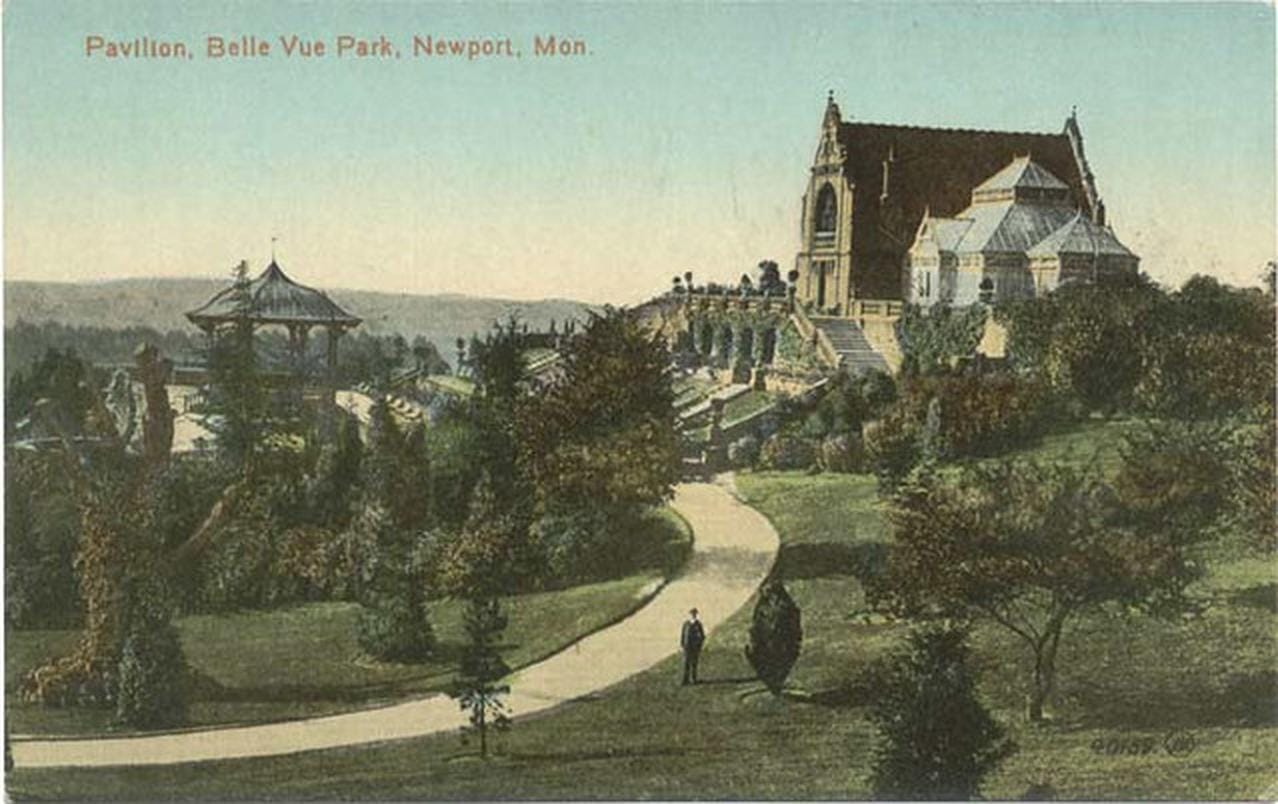

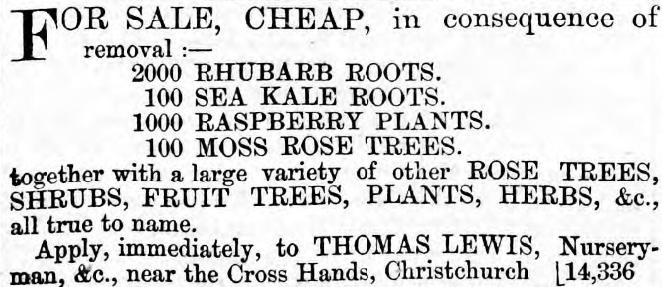

Pavements and Crossings
We have been informed on good authority, that the very defective state of the pavements, to which we alluded last week, is about to be partially remedied, some hundred feet of new pavement being intended to be laid down in the required places. There are, it is said, many sufficient reasons why this has not been accomplished long before, and which we may be able to furnish to the public in a short time. Meanwhile we believe a meeting of Commissioners will be held next Monday, when we hope the dangerous pavements and filthy crossings of this town will meet with immediate consideration and remedy.
— Monmouthshire Merlin, 13th March, 1841

'Herr Schallehn at Williams's Rooms'
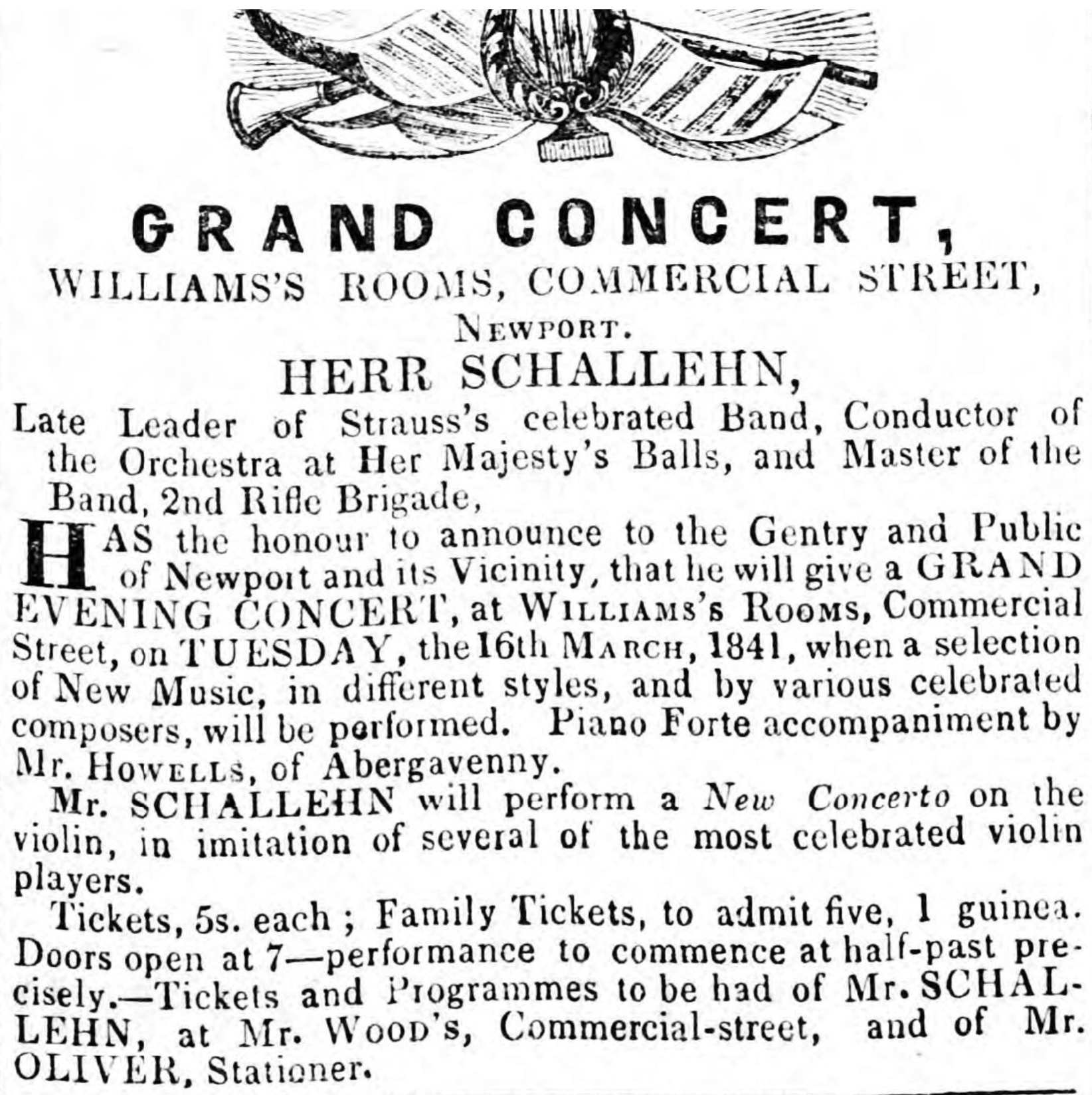
In March 1841, Herr Schallehn (also known as Heinrich Schallehn and John Henry Frederick Schallehn) visited Williams's Rooms on Commercial Street to perform a new violen concerto along with a selection of other styles of music.
Schallehn was a violinist, clarinetist, bandmaster, and teacher born in Prussia in 1815 and died in London in 1891. He spent time in Canada as well as becoming the conductor at the Crystal Palace between 1854-55.

According to an advert in the Merlin in January 1841 for a concert in Chepstow, her was also the conductor of the orchestra at Buckingham Palace.

He also returned in August 1841 to lead the orchestra at a Grand Music Festival at St Woolos Church.
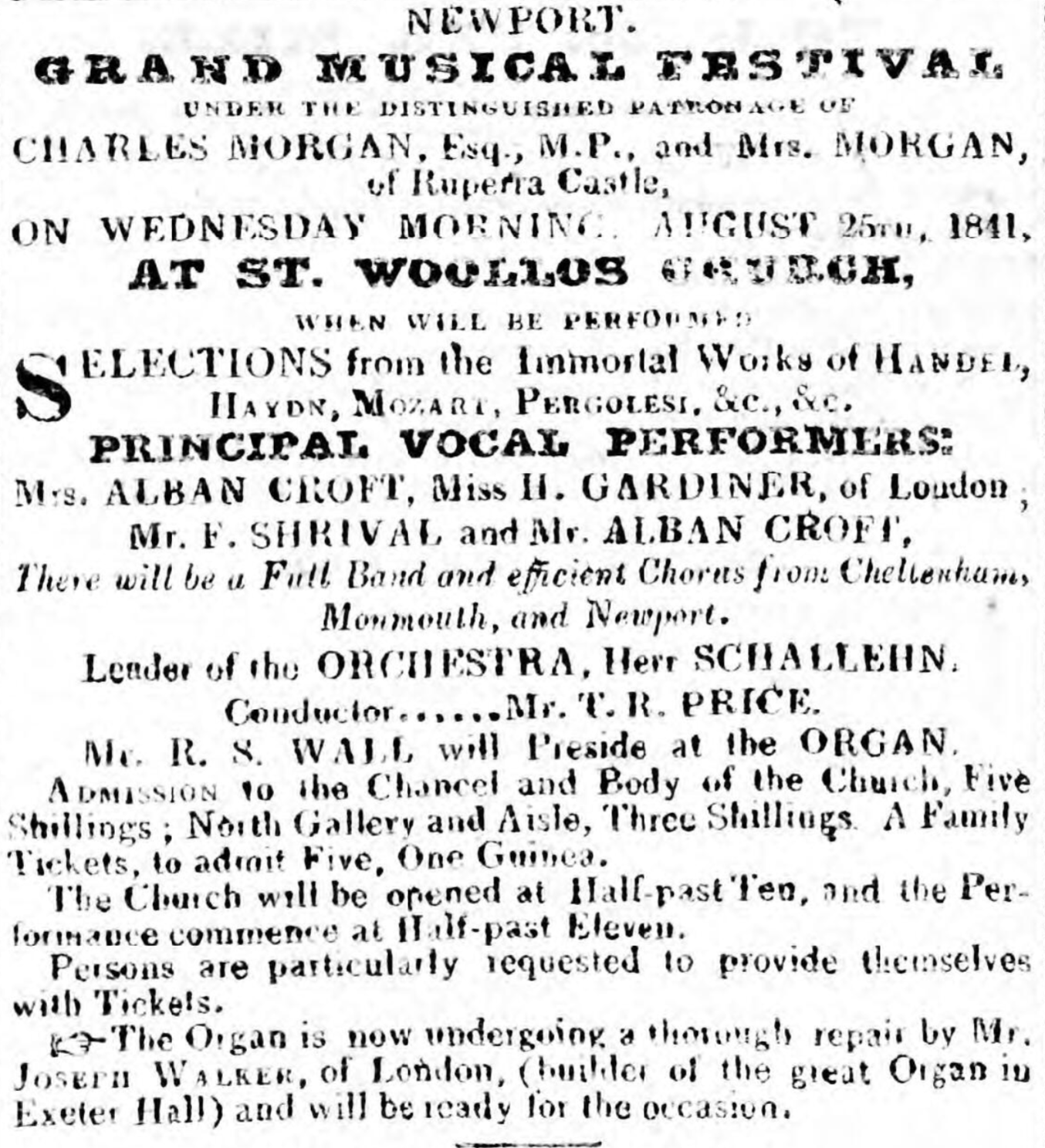

Pillgwenlly Gas
To the Editor of the Monmouthshire Merlin.
Sir,—Pillgwenlly, that moat important portion of our town has recently undergone several improvements. The roads are carefully scraped, and the rubbish removed the well, the resort of the idle and dissolute, has undergone considerable improvement; the supply of spring water is greater; whilst a pipe of soft water has been added; (thanks to the perseverance of Mr. William Jones, the present Agent to the Tredegar Wharf Company,) whilst, though last, not least, a Post-office is shortly to be established, and this place brought under Penny-post system.
Still, manifold as are these improvements, there is another that requires immediate attention, viz. the lighting it with gas. The present number of inhabitants of this place, tradesmen, shopkeepers, and others, saying nothing about those persons who have to visit it upon business after dark, calls loudly for this convenience. The proper authorities are respectfully requested to look into this matter. Considering the very short distance between this placc and the present gas works, whose pipes extend already down to the Salutation it surprising the Pillgwentonians have been so long kept darkness.
l am, Sir, yours, &c.,
IMPROVEMENTICUS
— Monmouthshire Merlin, 20th March, 1841

The Welsh Prince
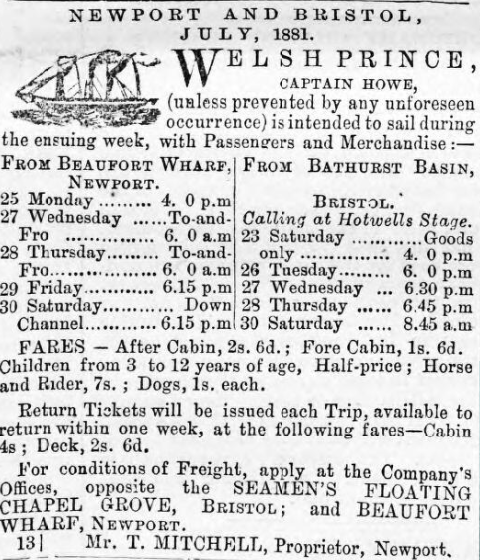
An advert from 1881 the Welsh Prince service between Bristol and Newport. According to Newport Past, the boat was owned by the Bristol and Newport Screw Steam Packet Company and carried passengers and good across the channel until 1886. The boat was still operating in the channel until 1930 when it was scrapped by Cashmores.


'The Bell in the Public Clock'
To the Editor of the Monmouthshire Merlin.
Sin,—I, in common with the other inhabitants of town, feel grateful to Sir Charles Morgan, and to his highly respected son, Octavius Morgan, Esq., M.P., for the improvement and convenience of the public clock; still, I beg permission through the medium of your valuable columns, to express my regret that, by some error or other, on the part the individual who cast the bell, the good intentions of the gentleman above alluded to are almost frustrated the bell giving only a muffled sound when struck.
I hope soon to hear of its removal, and a proper one being fixed in its place. I would also take the liberty to suggest that a gas-lamp fixed immediately over the dial, so that the clock shall be useful by night as well as by day. The expense of one lamp would be but trifling, and cheerfully paid by the inhabitants.
I am, Sir, etc.,
TIME
— Monmouthshire Merlin, 20th March, 1841
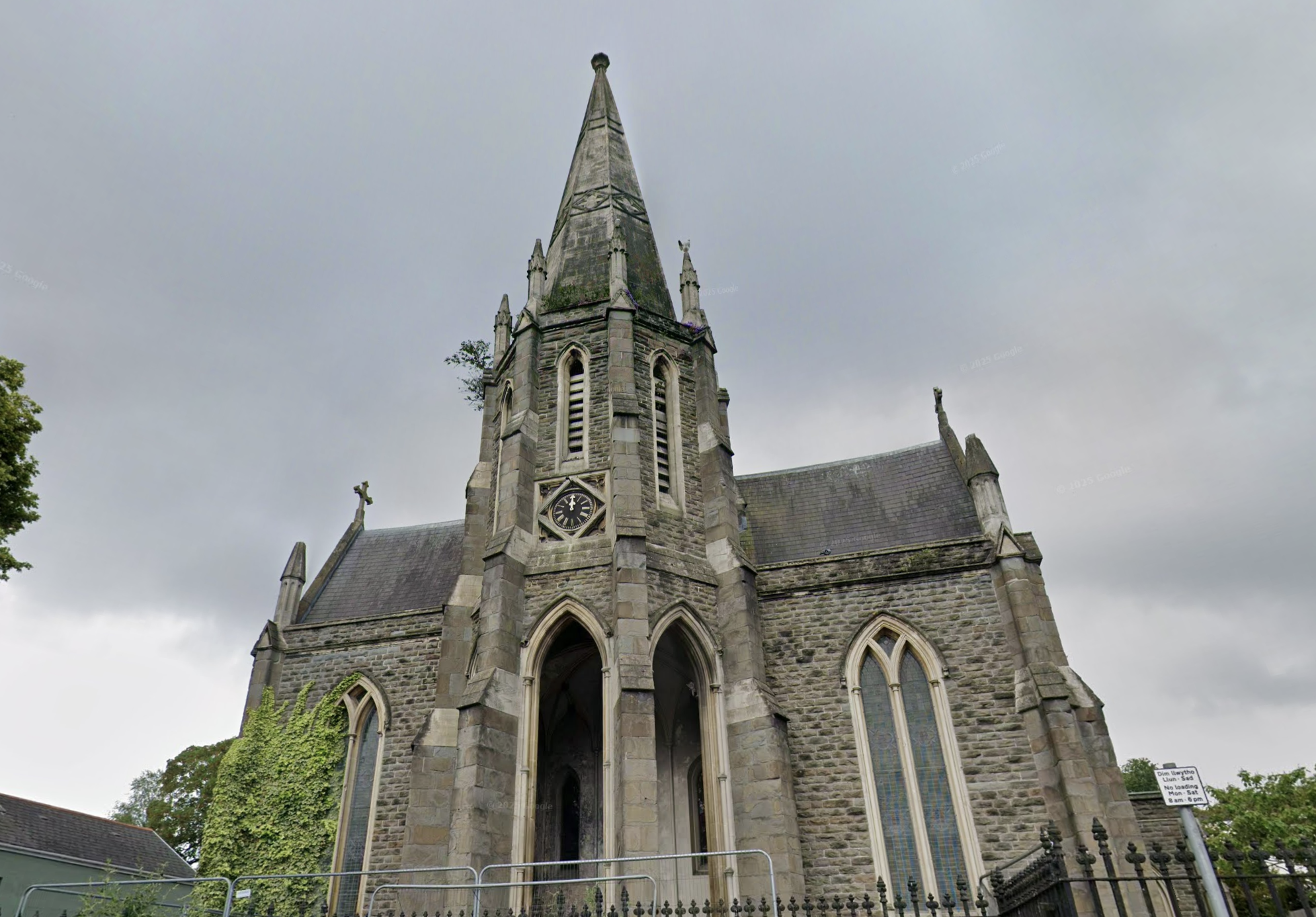

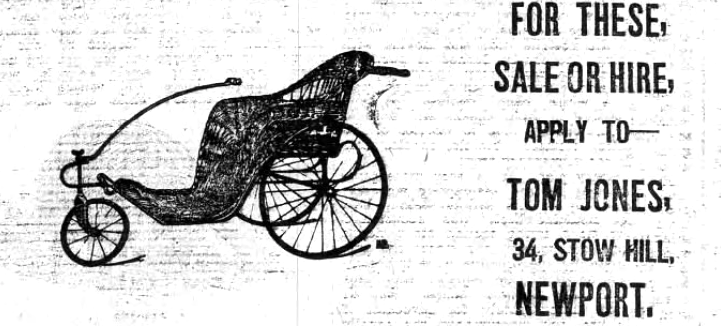

Bloomers Arrive in Newport
Two of the newly-fledged curiosities, called Bloomers, have appeared amongst us,-one rather matured in years and of some beauty, and the other in a transition state, from the blossom to the bloom of life. The latter lady was occasionally wreathed in smiles, as she sat with her companion on the platform, at the town-hall, on Monday evening, either at the novelty of her new attire, or the curiosity of the large assembly who gazed upon her.
The debut of the Bloomers at the town-hall, was greeted by many expressions of approval and disapproval, which did not, however, appear to abash these public-spirited advocates of "the rights of woman."
The lady who was to deliver tho lecture, was Mrs. Wheelock, the wife, we believe, of Captain Wheelock, the American Latter-day Saint, whose lectures have been anything but on a reformation of the ladies' costume in these "latter days." The younger debutante who accompanied the Dexter-ous lecturer, was stated to be a Miss Dallen, the daughter of an apostle of the Latter-day people, residing at Pillgwenlly. Several of the same persuasion were present; so that some persons looked upon it as the commencement of a new movement in connexion with the Mormon creed.
The audience was very large, chiefly composed of male creatures, many of whom, however, treated their better-halves, and those who enjoy rosy hours of courtship, probationary for "that delightful state," to the new Bloomer spectacle, probably as much with a view to the economy in dress, set forth by the blooming advocates, as to satisfy that inherent principle derived from Madame Eve—curiosity.
All unversed as we are in the mysteries of "many-coloured draperies," we are obliged to depend on the information of a lady, for our description of the peculiarities and qualities of the Bloomer costume.

In the first instance, Mrs. Wheelock ascended the platform with a brown gipsy straw hat, and rose-colour ribbons, jauntily set on her head; her dark hair was smoothed plainly down beside her temples, and brought off over the ears. descending in long curls unrestrainedly behind the head the jacket or tunic was an amber-coloured striped silk, fastened closely, high up the neck, with a small lace fringe above it, open at the chest, over an embroidered "shirt," and closed at the waist, from whence it descended in tolerably profuse plaits, down just below the knees: and from that point the same kind of silk "pettiloons", (vulgo, trowsers,) descended to the ancles (sic), where they were tied and adorned with frills and pretty little tapering feet were set-off by nicely-fitting cloth boots.
The younger damsel wore a white straw hat, with a rosette of blue and white tarlatan in front, coquettish looking enough, and plaid strings. Her hair was arranged similarly to Mrs. Wheelock's. She wore an ample black velvet jacket, which descended a little below the waist; the continuation thereof was a full-blown pink satin, in which we should think there were as many "widths" as belong to the dress sought to be reformed and from just below the knees, where this dress concluded, the real "continuations," or pettiloons, of a texture like white satin, and tied at the ancles in a frill of like material, introduced very dainty little feet, clothed in a pair of light cloth boots.
Mrs. Wheelock stood by the side of the platform table, in order that the new costume might be fairly exhibited; and Miss Dallen modestly lounged in an arm chair, some way in the rear. The lecture was read from MS., enclosed in an embossed leathern cover, with long ribbons dangling from its back; and the language and sentiments of the lecture seemed to us rather the offspring of a masculine "genius," than of the fair lady who read it.
The lecture was replete with allusions to the costume of the olden time,—the varying whims of the tyrant fashion in these latter days,—the monstrosity of low-necked dresses, tight corsets, large "bustles," we think they were termed, and "skirts" filled out like air balloons, sweeping the ground with their inordinate length also, like the best machines and besoms of Mr. Moses Scard; and concluded with striking observations as to the utility, convenience, and desirableness of the Bloomer costume.
We regret to say there were some ungallant persons of the masculine gender present, who were ungracious enough to disturb the fair Bloomer, as her lecture proceeded; but the searching and indignant glances directed towards them by her, were such as evidenced a strong feeling in respect to the "rights of woman." A
word on the Bloomer costume. Mrs. Wheelock, said in her lecture, appealingly, that "the gentleman possessed a high and correct taste as to ladies' dresses." If we may lay claim to deserving a share of the lecturer's flattering unction," and be permitted to express our taste," we should candidly say we did not like the Bloomer. Whether the generality of the "soft sex" will call this orthodoxy, or heterodoxy, we know not; but it is our candid opinion. Without a doubt, the immensely-spread skirts of ladies' dresses are a monstrosity and a wonder; but the Bloomer style is not a lady-like or becoming substitute; and, admitting the necessity for a reform of ladies' costumes, we still think a more pleasing and more attractive improvement than that exhibited by Mrs. Wheelock, and her young companion on the platform, can and ought to be introduced.
Returning from this critical dissertation, we must report the exit of the bloomers. When Mrs. Wheelock had delivered, in good English, and with pretty pronunciation, the peroration of her lecture, (which lasted about one hour,) and had closed her book, she and her companion assumed their "hats," and stood up, looking at the audience. The gaze was long-protracted, and, to us, appeared like a decided hint for the audience to retire. The intimation, however, was not taken; and the Bloomer ladies, appearing to be in "a fix," as our Transatlantic brethren would term it, one of their male friends, in an unexceptionable black dress coat, turn-down shirt collar, and virgin-white kids, ascended the platform, and said the lecture was concluded, and the ladies were only waiting for the carriage. Thereupon, as if to take a nearer inspection, or a "last fond look," the greater part of the male audience scrambled over the benches, and drew towards the platform, where they crowded round the Bloomers, with something of the curiosity of aboriginal inhabitants of some island in the remote Pacific, who crowded around the first new-comer they had ever seen, to ascertain what he was like. The scrutiny was as embarrassing to the objects of this curiosity, as pleasing to the inspectors; and the Bloomers only escaped those too-forward approximations, by rushing through a side door, and so gaining the lobby of the hall, (to which they were rudely pursued,) ultimately reaching the carriage, in which they were driven off; accompanied by the shouts and laughter of the crowds who had assembled around them.
In conclusion, we may observe, that Mrs. Foster, of London,—a lady of high reputation as a lecturer, and of varied literary acquirements, whose lectures at the Hanover square rooms, and the Whittington Club, have been attended by numerous and respectable audiences,— is about to appear in Newport, under the auspices of the Athenaeum committee, to illustrate the female costume of the last century, exhibiting paintings of the various styles, and giving graphic sketches of all, which will embrace, in particular, a description of dresses and their alterations from the "Hoop to the Bloomer." we may thus anticipate a rich and, indeed, intellectual, treat. which, we have no doubt, will be enjoyed by a "large house especially as Mrs. Foster will appear in one portion of her lecture, in the Bloomer costume.
— Monmouthshire Merlin, 28th November, 1851



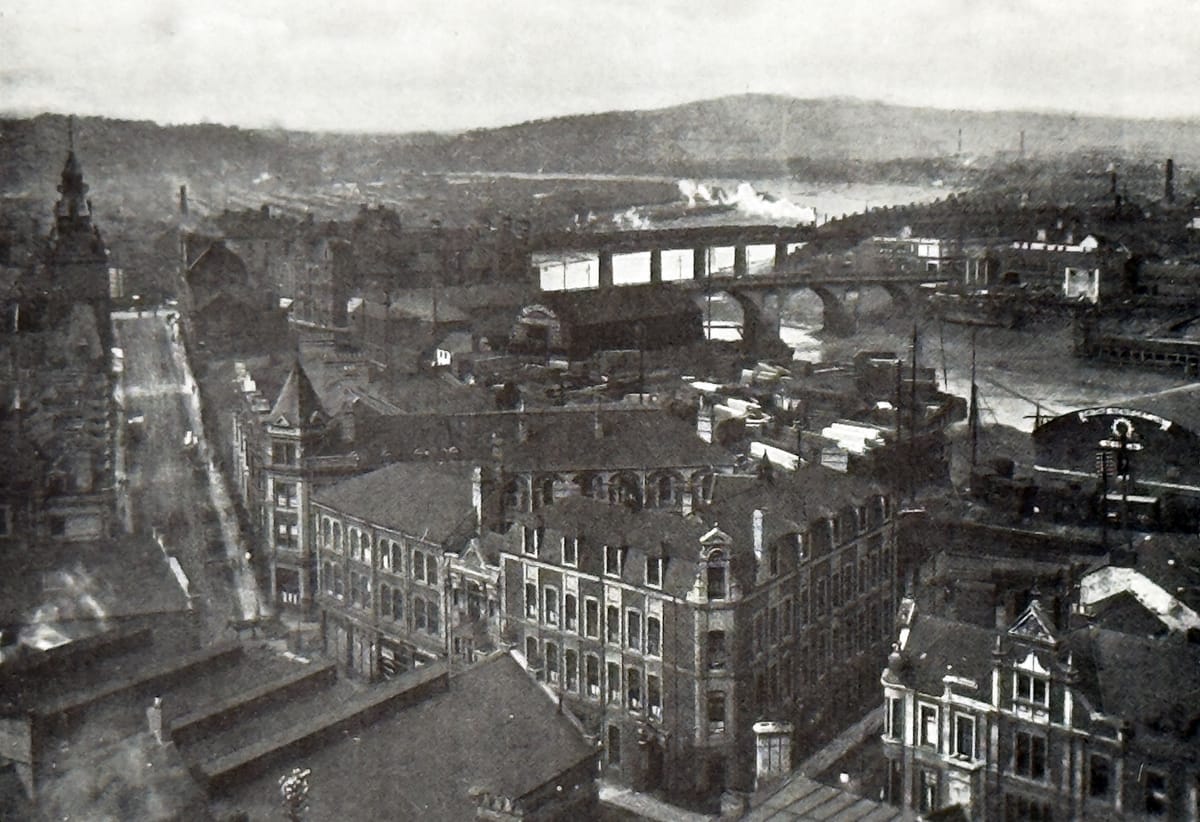
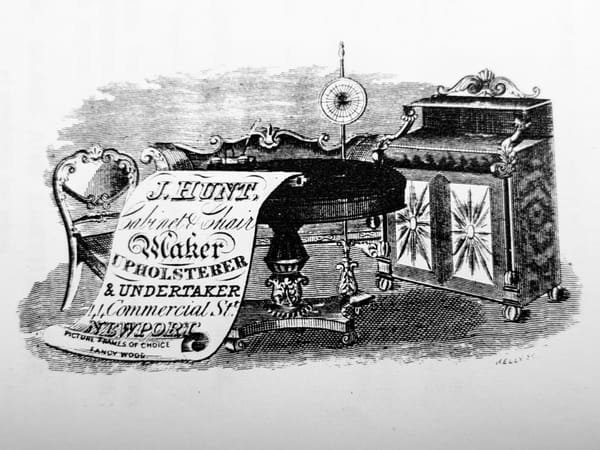
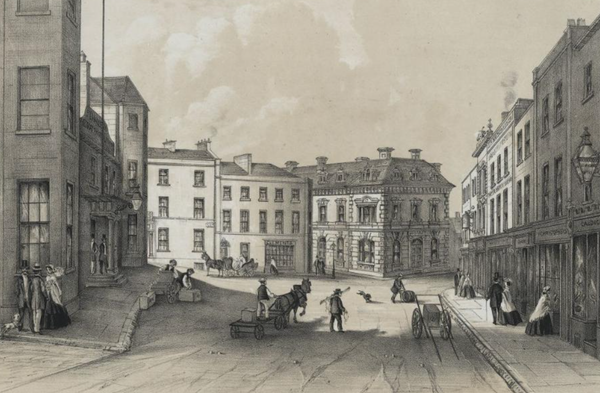
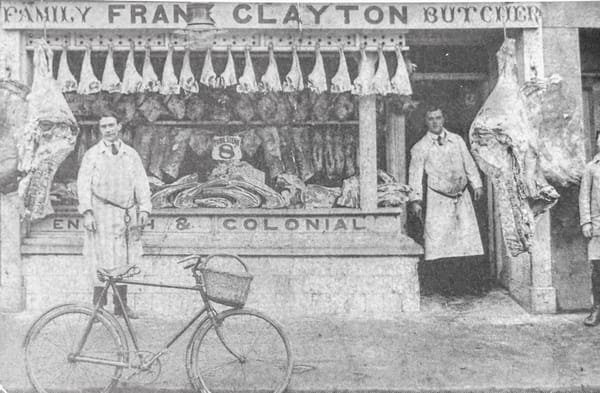
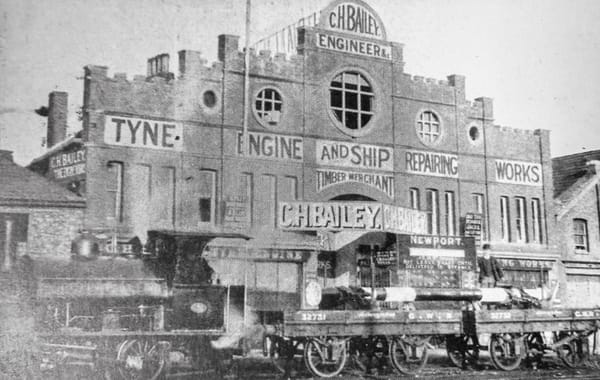

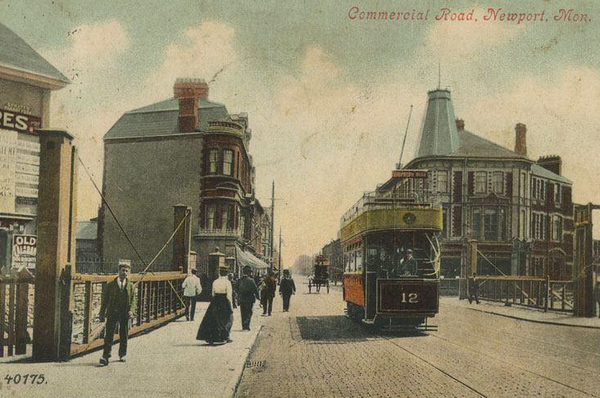
Member discussion